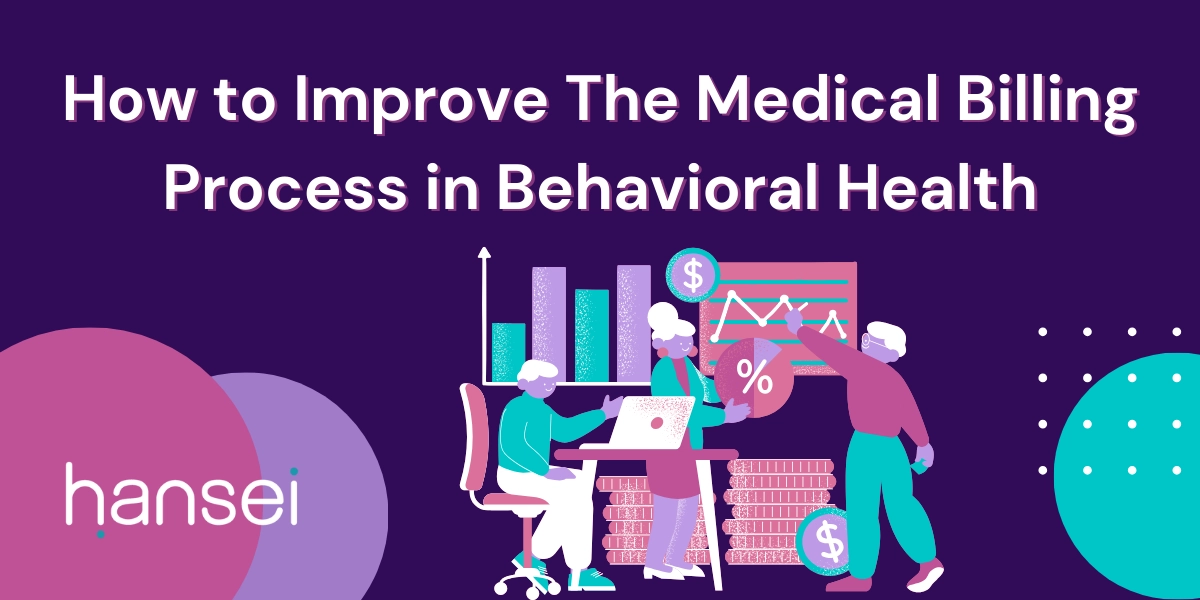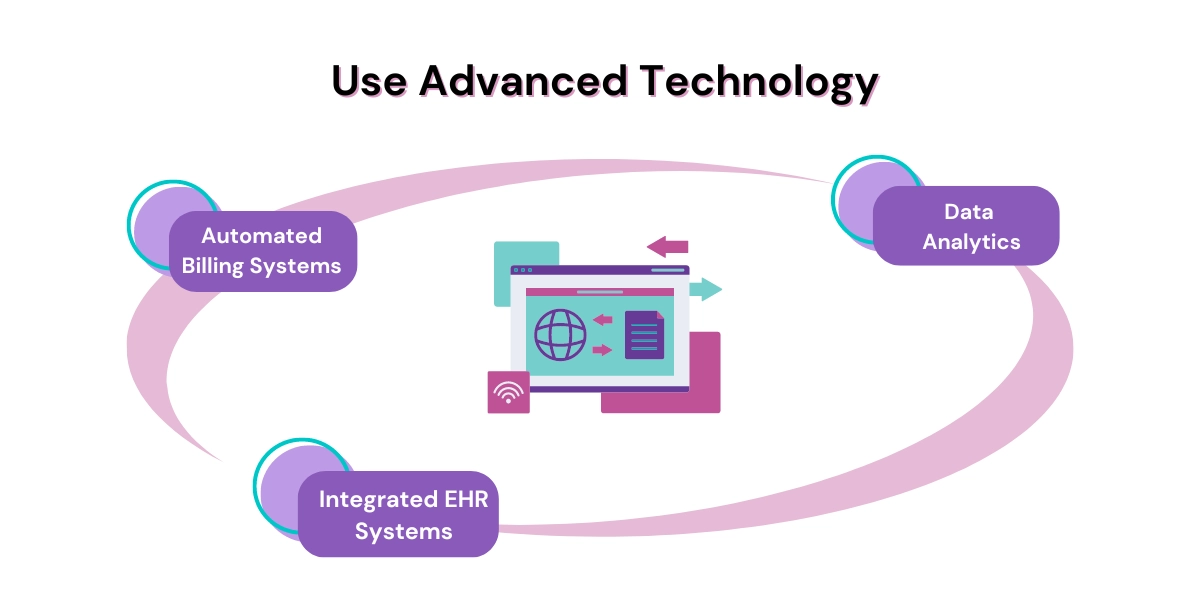Blog

Getting the medical billing process right is important for the financial health of any behavioral health practice. One report estimates that as many as 80% of medical bills contain errors – which creates significant problems for behavioral health providers and insurance companies.
Insurance and billing are areas that are always changing, and it can be challenging to stay on top of everything. There are effective strategies to make the process smoother and more efficient, which include some practical tips on how to improve the medical billing process in behavioral health.
1. Train Your Team
The first step in improving your billing process is making sure everyone on your team knows their stuff. Behavioral health billing can get complicated because of the different services and coding requirements. When you have effective communication, keep learning the industry, and work together, the whole process can be streamlined efficiently.
Keep Learning
Make sure your team is always learning. Regular training sessions about the latest insurance policies, coding practices, and any regulatory changes can be super helpful. You might even consider certified training programs or workshops to keep everyone up-to-date.
Clear Communication
Set up clear communication channels between the billing team, clinicians, and administrative staff. This way, any issues or uncertainties with documentation and coding can be sorted out quickly, reducing the chances of mistakes.

2. Use Advanced Technology
Leveraging technology can really streamline your billing process. Advanced billing software and electronic health records (EHR) systems can make things a lot easier and more efficient.
Automated Billing Systems
Automated billing systems are great for handling claims processing, payment posting, and managing denials. Automation reduces human error, speeds up the billing cycle, and ensures accurate billing.
Integrated EHR Systems
Using integrated EHR systems that connect patient records with billing information can save you a lot of headaches. It ensures all the necessary information is available for accurate coding and billing, which means fewer claim denials due to missing or incorrect data.
Data Analytics
Data analytics can be a game-changer. By monitoring and analyzing your billing processes, you can identify trends, spot inefficiencies, and highlight areas that need improvement. This data-driven approach helps you make informed decisions and optimize your billing procedures.
3. Stay Compliant
Compliance is key in medical billing. Not following federal and state regulations can lead to claim denials, fines, and even legal issues.
Keep Up with Regulations
Regularly review and stay updated on the latest regulations and guidelines from organizations like the Centers for Medicare & Medicaid Services (CMS) and the Health Insurance Portability and Accountability Act (HIPAA). Make sure your billing team is aware of these regulations and incorporates them into their daily routines.
Regular Audits
Conduct regular audits of your billing process to catch and fix any compliance issues. Audits help ensure your billing practices align with current regulations and can prevent potential legal problems.
Compliance Policies
Develop and implement comprehensive compliance policies and procedures. These should outline the steps for correct billing practices, documentation requirements, and how to handle any compliance issues that may pop up.
4. Engage with Patients
Patient engagement is crucial for a smooth billing process. Engaged patients are more likely to provide accurate information, understand their financial responsibilities, and make timely payments.
Clear Communication
Communicate clearly with patients about their billing and insurance information. Explain their financial responsibilities, including co-pays, deductibles, and out-of-pocket expenses. This transparency helps avoid misunderstandings and ensures patients are prepared for their financial obligations.
Simple Billing Statements
Keep billing statements simple and easy to understand. Complex and confusing statements can frustrate patients and delay payments. Clear and concise statements improve patient satisfaction and encourage timely payments.
Financial Counseling
Offer financial counseling services to help patients understand their insurance coverage and payment options. Financial counselors can assist patients in navigating their bills and developing payment plans if needed.
5. Handle Denials Efficiently
Denial management is a big part of the billing process. Efficiently handling denied claims can significantly improve your revenue cycle and reduce financial losses.
Identify Common Denial Reasons
Analyze and identify the common reasons for claim denials. Whether it’s coding errors, missing information, or insurance issues, understanding the root causes allows for targeted improvements in the billing process.
Denial Management Strategy
Create a comprehensive denial management strategy. This should include timely follow-up on denied claims, resubmission procedures, and corrective actions to prevent future denials. A proactive approach ensures issues are resolved quickly and revenue is recovered efficiently.

6. Keep Improving
The medical billing process should always be evolving. Regularly assess the effectiveness of your current procedures and implement changes as necessary.
Performance Reviews
Conduct regular performance reviews of your billing process. Assess key performance indicators (KPIs) like claim acceptance rates, denial rates, and days in accounts receivable (AR). Use these metrics to identify areas for improvement.
Feedback
Get feedback from staff and patients about the billing process. Understanding their experiences and challenges can provide valuable insights into areas that need improvement. Regular feedback sessions can also foster a culture of continuous improvement and collaboration within the practice.
Best Practices
Stay informed about industry best practices and incorporate them into your billing process. Benchmarking against other behavioral health practices can help identify effective strategies and improve overall efficiency.
Professional Development
Invest in the professional development of your billing team. Encourage certifications and participation in industry conferences and seminars. Professional development ensures your team remains knowledgeable and skilled in the latest billing practices.
Hansei Solutions Can Improve Medical Billing Process in Behavioral Health
Improving the medical billing process in behavioral health takes a well-rounded approach that includes getting help from a billing company that specializes in behavioral health billing. Using the strategies above can help you enhance the billing process, but with Hansei’s help, you can become more efficient. Call today to get a demo of what Hansei can do for your behavioral health practice.

Ready to focus on providing healthcare? Let us lighten your load.
We’re here to address your pain points and create growth opportunities for your organization. We’re passionate about what we do, and it shows in every interaction. Learn what makes us tick and schedule a demo today.